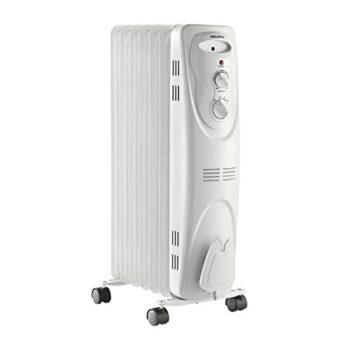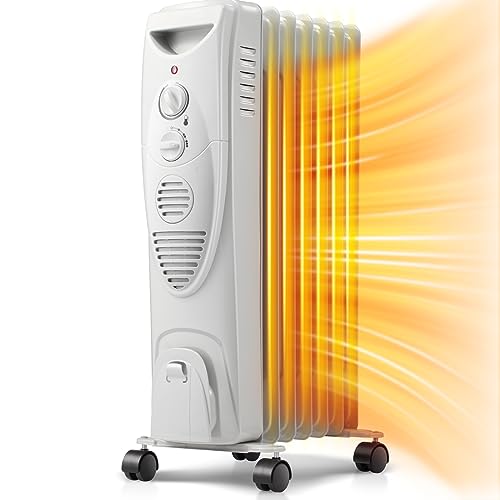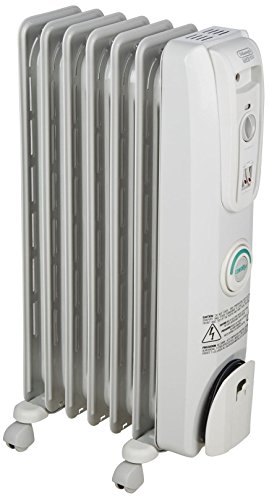Comparing Radiant Heaters with other systems reveals efficiency and comfort benefits. Discover how they stand out in our comprehensive guide.
As winter approaches, we all strive to create a warm and comfortable environment in our homes. However, choosing the right heating system can sometimes be overwhelming, with a multitude of options available. In this blog post, we will explore the world of radiant heaters and compare them with other popular heating systems. Whether you’re a homeowner looking to make an informed decision or simply curious about the differences between various heating technologies, this post aims to provide you with valuable insights. Join us as we delve into the advantages and disadvantages of radiant heaters in comparison to other heating systems, helping you make the best choice for your unique needs.
When it comes to selecting the ideal heating system for your home or office, the choices can be overwhelming. Among the various options, radiant heaters stand out as a unique and efficient choice. In our comprehensive guide, we delve into a detailed comparison between radiant heaters and other common heating systems. This comparison aims to highlight the distinct efficiency and comfort benefits that radiant heaters offer.
Radiant heating, known for its direct and even distribution of warmth, contrasts significantly with other heating methods like forced-air or convection heaters. By exploring how these systems work, their energy consumption, installation processes, and the type of warmth they provide, we aim to give you a clearer understanding of why radiant heaters might be the superior choice for your specific needs.
Whether you’re renovating, building anew, or simply looking to upgrade your current heating solution, understanding the nuances of these different systems is crucial. So, let’s embark on this journey of discovery, where we unravel the intricacies of radiant heaters compared to their counterparts, and uncover the reasons why they might just be the ideal choice for bringing comfort and efficiency to your space.
Top-selling Radiant Heaters for Efficient and Comfortable Warmth
What are Radiant Heaters?
Radiant heaters are a type of heating device that provides warmth by directly emitting infrared radiation. Unlike traditional heaters that warm the surrounding air, radiant heaters transfer heat directly to objects and people in their line of sight. This unique characteristic allows them to offer numerous advantages over conventional heating systems, such as increased energy-efficiency and more targeted heating.
How do Radiant Heaters Work?
Radiant heaters rely on the principle of infrared radiation to generate heat. They contain heating elements, such as coils or panels, that produce electromagnetic waves in the form of infrared radiation. When these waves come into contact with an object or a person, they transfer energy in the form of heat, causing the object or person to warm up.
The process of radiant heating is similar to the warmth felt by the sun’s rays on a clear day. Just as the sun heats your skin directly without warming up the surrounding air, radiant heaters provide heat by directly warming the objects and people in their vicinity.
Key Benefits of Radiant Heaters
Radiant heaters offer several advantages that make them an appealing heating option. Here are some key benefits:
- Energy Efficiency: Radiant heaters are highly energy-efficient because they eliminate the need to continuously heat the surrounding air. By directly warming objects and people, they minimize energy waste and reduce heating costs.
- Targeted Heating: Radiant heaters provide targeted heat, which allows you to focus warmth on specific areas or individuals. This feature is particularly useful in larger spaces, as you can direct heat only where it’s needed, leading to greater comfort and energy savings.
- Quick Heat Transfer: Radiant heaters deliver rapid heat transfer, so you can experience warmth almost instantly. Unlike traditional heaters that may take a while to warm up a room, radiant heaters provide immediate comfort and are ideal for quick heating requirements.
- Silent Operation: Many radiant heaters operate silently, without the need for noisy fans or blowers. This makes them a suitable option for libraries, bedrooms, or offices where quietness is desired.
- Space-Saving Design: Radiant heaters are available in various compact designs, making them space-saving solutions for both residential and commercial settings. Whether it’s wall-mounted, ceiling-mounted, or portable, there’s a radiant heater that will fit your space requirements.
Brands and Models
When considering radiant heaters, there are several reputable brands and models to choose from, offering a wide range of features and designs. Some popular options include:
- Brand A, Model X: A wall-mounted radiant heater that comes with a programmable thermostat and adjustable heat settings. It offers efficient heating and is suitable for medium-sized rooms.
- Brand B, Model Y: A portable radiant heater featuring a compact design and oscillation function. It provides quick and even heat distribution, making it ideal for small spaces or spot heating.
- Brand C, Model Z: A ceiling-mounted radiant heater suited for large commercial areas. With its powerful heating capacity and adjustable intensity, it can efficiently warm up sizable spaces.
In conclusion, radiant heaters provide an energy-efficient, targeted, and quick heating solution by directly warming objects and people. With their silent operation and space-saving design, they offer both comfort and convenience. Consider exploring reputable brands like Brand A, Brand B, and Brand C to find the perfect radiant heater that suits your heating requirements.
Comparison with Forced Air Systems
Radiant heaters and forced air systems are two popular heating options for homes and businesses. While both serve the purpose of keeping spaces warm, there are distinct differences between the two. In this section, we will explore these differences and highlight the pros and cons of each so that you can make an informed decision for your heating needs.
Comfort
Radiant Heaters
Radiant heaters operate by emitting infrared radiation that directly heats the objects and surfaces in a room. This form of heat transfer creates a comfortable and consistent warmth without the need for blowing air. The lack of air movement helps to minimize drafts and the circulation of dust, making it an ideal choice for individuals with sensitivity to allergies or asthma. Additionally, as radiant heaters heat objects rather than just the air, the heat remains longer, providing a more sustained sense of comfort even after the heater has been turned off.
Forced Air Systems
Forced air systems, on the other hand, rely on blowing heated air into a space to raise the temperature. While this method of heating can quickly warm up a room, it can create a feeling of inconsistency. The forced air can also stir up dust and allergens, which may be problematic for those with respiratory conditions. Additionally, the constant cycling of the air can lead to dryness, resulting in discomfort for some individuals.
Energy Efficiency
Radiant Heaters
Radiant heaters are renowned for their energy efficiency. Since they directly heat objects and surfaces, there is minimal heat loss to the surrounding environment. This focused heating reduces energy waste and helps maintain lower heating costs. Furthermore, radiant heaters do not require the use of fans or blowers, which typically consume additional energy. As a result, radiant heaters are an excellent choice for those seeking to reduce their environmental footprint and save on energy bills.
Forced Air Systems
Forced air systems have the advantage of being able to heat large spaces quickly. However, the reliance on blowing air to distribute heat can result in significant heat loss due to inefficiencies and ductwork. Additionally, to maintain a consistent temperature, forced air systems often need to cycle on and off frequently, consuming more energy in the process. Consequently, while forced air systems may be effective for heating large areas, they can be less energy-efficient overall.
Installation Costs
Radiant Heaters
Installing a radiant heating system, such as underfloor heating or radiant panels, typically requires professional assistance and careful planning. The installation costs can vary depending on factors such as the size of the area to be heated and the type of system chosen. However, it is important to consider the long-term cost savings associated with energy efficiency when evaluating the installation expenses.
Forced Air Systems
Forced air systems, such as furnaces or heat pumps, also require professional installation. These systems involve the installation of ductwork or venting systems, which can be a complex and time-consuming process. The cost of installation can therefore be higher, especially in cases where existing ductwork is not available.
Comparison with Electric Baseboard Heaters
Heating systems are an essential component of any home, ensuring comfort during cold seasons. When it comes to choosing the right heater, two popular options are radiant heaters and electric baseboard heaters. In this article, we will compare these two types of heaters based on their heating mechanisms, energy consumption, and maintenance requirements.
I. Heating Mechanisms
Radiant heaters and electric baseboard heaters employ different methods to generate heat. Understanding how they work can help you make an informed decision.
Radiant Heaters
- Radiant heaters use infrared radiation to heat objects directly, similar to how the sun warms the Earth.
- These heaters emit heat from a heated surface, such as a quartz element or a metal coil.
- Objects and people in the room absorb the heat, providing a comfortable and efficient heating experience.
- Examples of radiant heaters include the Dr Infrared Heater Portable Space Heater and the Duraflame Infrared Quartz Tower Heater.
Electric Baseboard Heaters
- Electric baseboard heaters rely on convection to heat the air in a room.
- These heaters contain electric coils within a metal housing.
- As the coils heat up, they warm the air above them.
- The warm air rises and circulates throughout the room, resulting in even heating.
- Brands such as Cadet and Dimplex offer reliable electric baseboard heaters.
II. Energy Consumption
Energy consumption is a crucial factor when choosing a heater. Let’s examine how radiant heaters and electric baseboard heaters compare in terms of energy efficiency.
Radiant Heaters
- Radiant heaters are known for their energy efficiency.
- Since they directly heat objects and people, there is minimal heat loss, leading to cost-effective heating.
- They provide instant heat without the need for warm-up time or waiting for the room to reach the desired temperature.
Electric Baseboard Heaters
- Electric baseboard heaters tend to consume more energy than radiant heaters.
- The convection process requires continuous electricity to maintain a consistent temperature.
- While newer models have improved energy efficiency, overall, they may be less energy-efficient compared to radiant heaters.
III. Maintenance Requirements
Maintaining your heater properly will extend its lifespan and keep it functioning efficiently. Let’s explore the maintenance requirements for both radiant heaters and electric baseboard heaters.
Radiant Heaters
- Radiant heaters generally have minimal maintenance requirements.
- The heating elements should be kept clean to ensure optimal performance.
- Regularly wiping the surface with a damp cloth is usually sufficient.
- Some models may require occasional element replacement or dust removal from internal components.
Electric Baseboard Heaters
- Electric baseboard heaters require similar maintenance to radiant heaters.
- Cleaning the surface and ensuring there are no obstructions are important for proper heat distribution.
- Additionally, checking the electrical connections and thermostat functionality periodically is recommended.
Summary
In summary, radiant heaters and electric baseboard heaters offer different heating mechanisms, energy consumption levels, and maintenance requirements. Consider the specific needs of your space, energy efficiency goals, and maintenance preferences when choosing between them. Radiant heaters provide targeted heat and energy efficiency, while electric baseboard heaters ensure even heating throughout a room.
Comparison with Hydronic Systems
Radiant heaters and hydronic systems are two popular options for heating homes and buildings. While both systems have their benefits, it’s important to understand their differences before making a decision. In this section, we will compare radiant heaters with hydronic systems, highlighting factors such as heating efficiency, installation complexity, and long-term costs.
Heating Efficiency
Radiant Heaters
- Radiant heaters work by emitting infrared radiation that directly heats objects and people in a room.
- They provide targeted, even heat distribution, with minimal heat loss to the surrounding environment.
- With radiant heaters, rooms can be comfortably heated more quickly than with hydronic systems.
- Some popular radiant heater brands include Rinnai, Mr. Heater, and Duraflame.
Hydronic Systems
- Hydronic systems use heated water to transfer heat through radiators or radiant floor heating.
- They provide consistent and gentle heat by radiating warmth throughout the space.
- Hydronic systems are efficient for large areas or multi-story buildings, as the water can be evenly distributed.
- Popular hydronic system brands include Navien, Rinnai, and Slant/Fin.
Installation Complexity
Radiant Heaters
- Radiant heaters are generally easier to install compared to hydronic systems.
- They require minimal plumbing and electrical work, making them a more straightforward option for retrofitting or small-scale projects.
- Some radiant heaters can even be portable and require no installation at all.
- Installation is typically a DIY project, but it’s recommended to consult a professional for any electrical connections.
Hydronic Systems
- Installing hydronic systems requires more extensive plumbing work and potentially additional electrical connections.
- It may involve routing pipes through walls, floors, or ceilings, which can be more challenging and time-consuming.
- Due to the complexity, hiring a professional plumber or heating contractor is strongly recommended.
Long-term Costs
Radiant Heaters
- Radiant heaters are generally more cost-effective in terms of upfront investment.
- Their installation costs are typically lower compared to hydronic systems.
- Radiant heaters also have lower maintenance costs, as they have fewer components and simpler designs.
- However, the energy efficiency of radiant heaters can vary depending on the model and usage.
Hydronic Systems
- Hydronic systems may have higher upfront costs due to the complexity of installation and additional components.
- They offer excellent energy efficiency, potentially resulting in lower long-term energy bills.
- Maintenance costs for hydronic systems can be slightly higher due to the regular servicing required for the boiler, pumps, and valves.
Key Takeaways and Final Thoughts
In conclusion, after thoroughly examining the features and benefits of radiant heaters in comparison to other heating systems, it is clear that radiant heaters offer unique advantages. Their energy efficiency, ability to provide targeted heating, and potential long-term cost savings make them a worthwhile consideration for individuals seeking effective and efficient heating solutions. By understanding the strengths of radiant heaters and considering individual heating needs, one can make an informed decision when selecting a heating system.

































